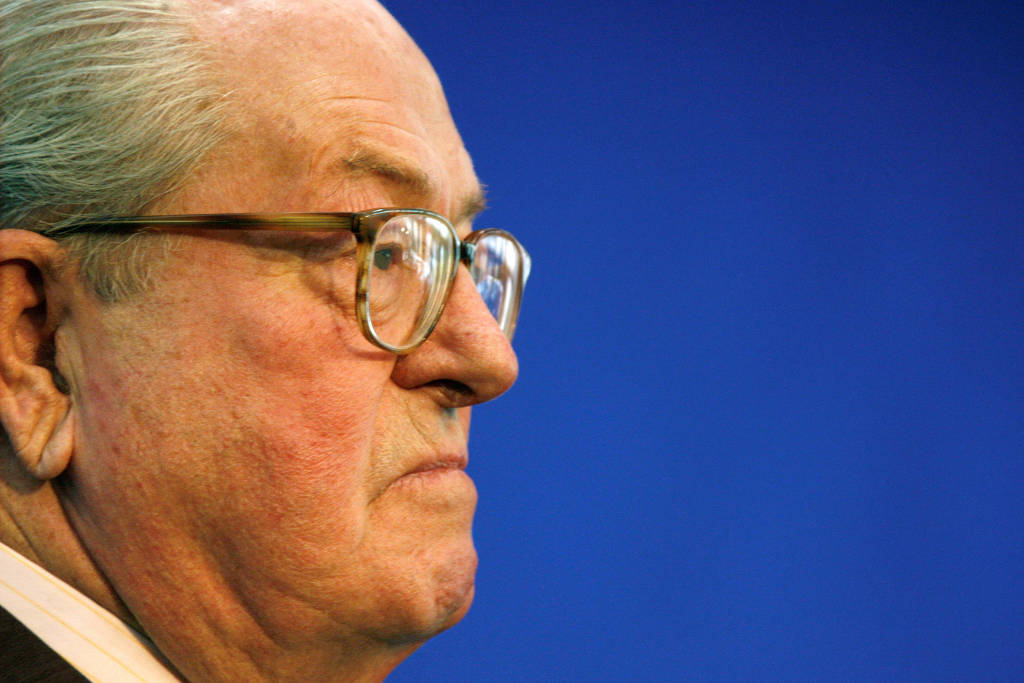
Published 07/01/2025 16:28 | Edited 07/01/2025 17:37
Jean-Marie Le Pen, founder of the far-right party National Front (FN) and historic figure of European reactionism, died this Tuesday (7), aged 96. The politician’s family confirmed his death and reported that he had been admitted to a nursing home on the outskirts of Paris for weeks, in poor health.
Le Pen consolidated over seven decades a trajectory marked by hate speech, historical denialism and xenophobic rhetoric, leaving a legacy of intolerance that influenced the rise of the far right in Europe. Among his numerous controversial statements is the minimization of the Holocaust, described by him as “a detail” of the Second World War, which resulted in several judicial convictions for inciting racial hatred.
A former paratrooper in the French Army, Le Pen fought in France’s colonial wars in Indochina and Algeria, consolidating a militaristic and nostalgic vision of the French empire. This vision has guided his political activities since joining the National Assembly in 1956. The creation of the National Front in 1972 marked the attempt to unify reactionary groups, including former collaborators of the Nazi Vichy regime.
Le Pen’s leadership was responsible for dragging far-right discourse to the center of French political debate, culminating in 2002, when it shocked the world by advancing to the second round of the presidential election against Jacques Chirac. The result, however, was a crushing defeat, reflecting the mobilization of broad sectors of French society who saw him as a threat to democracy and peaceful coexistence.
In recent years, Le Pen was expelled from her own party by her daughter, Marine Le Pen, current leader of the French extreme right and responsible for an attempt to “de-diabolize” the party, now renamed National Rally (RN). Despite the family and political rupture, Marine maintained her anti-immigration and nationalist discourse, seeking to adapt her father’s extremist legacy to make it more electorally viable.
Jean-Marie Le Pen’s death marks the end of a dark chapter in French political history, but his ideas continue to resonate in sectors of the radical right, which continue to explore fear and intolerance as instruments of popular mobilization.
President Emmanuel Macron briefly commented on Le Pen’s death, highlighting that “it is up to History to judge” the role played by the politician. On the other hand, progressive figures such as Jean-Luc Mélenchon highlighted that, although the fight against the man has ended, the battle against the racism and anti-Semitism he propagated must continue.
Source: vermelho.org.br

